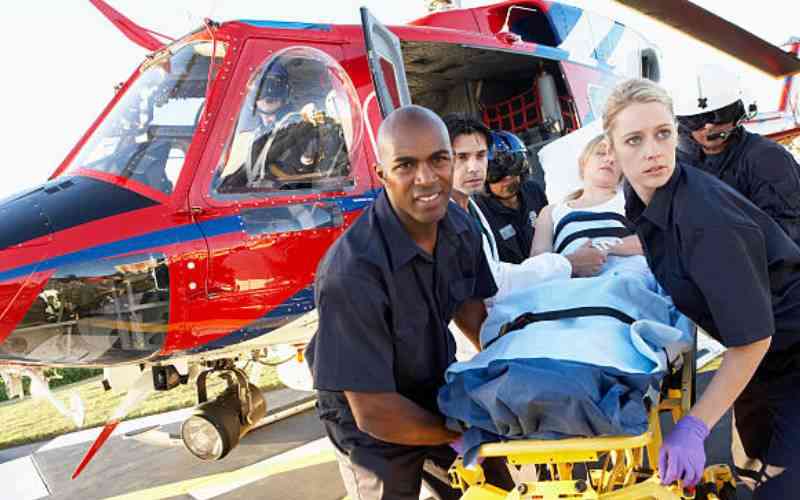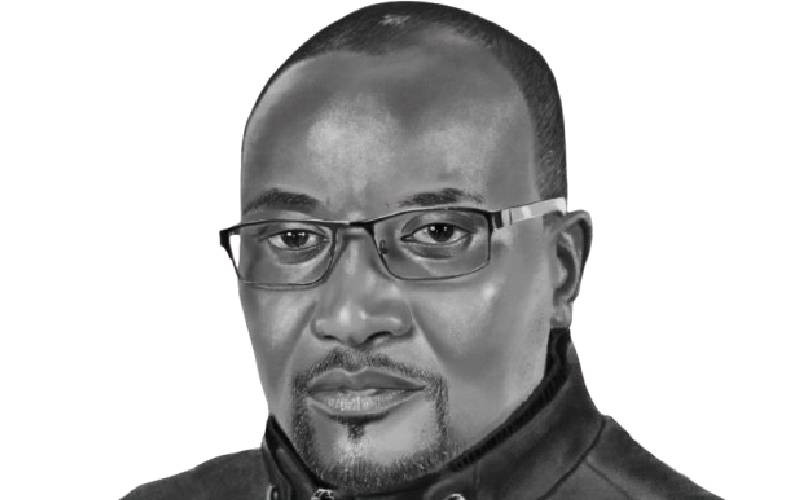
In a world where healthcare innovation and entrepreneurship intersect, few stories are as inspiring as those of Dr Diana Okello, a medic.
A pioneering pediatric dentist and co-founder of Riverdale Clinic, Dr Diana has forged a path that combines medical expertise with astute business acumen.
Through her leadership, Riverdale Clinic has grown into one of Kenya’s premier healthcare facilities, offering day-to-day medical services and specialised aviation medicine—a testament to her vision and commitment to excellence.
In this feature, we explore Dr Diana’s entrepreneurial journey, and the opportunities available for women in business, especially in the healthcare industry.
Visionary leadership and Riverdale’s evolution: From Level 3A to 3B
Dr Diana’s passion for healthcare started long before Riverdale Clinic was established. After years of honing her skills as a pediatric dentist, she co-founded the clinic with three partners, all of whom brought diverse strengths to the venture.
Under her leadership, Riverdale Clinic has evolved from a basic Level 3A facility into a comprehensive Level 3B centre, a transformation that has expanded its medical offerings.
“A Level 3B status allows us to perform theatre services and minimally invasive surgeries, a major step forward in providing more advanced care,” Dr Diana explains.
This upgrade, recognised by the Kenya Medical Practitioners and Dentists Council (KMPDC), means Riverdale can now perform daycare surgeries, enhancing its ability to treat patients—especially children with special needs— under safe, controlled environments.
This achievement is one of many that have propelled Riverdale Clinic to the forefront of healthcare innovation in Kenya.
Dr Diana and her team are continually striving to raise the standard of care and provide the best services to their patients, from routine check-ups to complex surgical procedures.
Exploring new frontiers: Aviation medicine and specialised care
A key highlight in Riverdale’s portfolio is its rare aviation medicine accreditation, making it one of the select few clinics in Kenya with this certification.
“We are one of only 13 accredited medical providers in the country authorised by the Kenya Civil Aviation Authority (KCAA) to conduct medical examinations for aviation professionals,” Dr Diana shares.
Stay informed. Subscribe to our newsletter
This niche market, which caters to flight attendants, pilots, air traffic controllers, and other aviation staff, represents an exciting growth area for the clinic.
With aviation professionals required to undergo annual medical exams, Riverdale is uniquely positioned to serve this exclusive clientele. One of Dr Diana’s co-founders is one of the few certified aviation medical examiners, further strengthening the clinic’s competitive edge in this sector.
Seizing growth opportunities in healthcare
Dr Diana’s business acumen shines through her ability to identify and capitalise on growth areas within healthcare. She points to aviation medicine as an underexplored niche with significant potential.
“With only 13 certified providers, there’s a clear gap in aviation medicine. This offers immense opportunities for entrepreneurs interested in specialised healthcare services,” she notes.
Beyond aviation medicine, Dr Diana is keen to emphasize the broader potential of telemedicine, which has gained momentum in recent years.
“Telemedicine connects doctors with patients in remote areas, bridging the gap between urban specialists and rural communities,” she explains.
For instance, a patient in a remote town like Busia can consult a specialist in Nairobi without the need for travel. This digital innovation opens doors for entrepreneurs, especially those with a technological background—to develop platforms or apps that facilitate remote consultations or improve patient-doctor interactions.
“Telemedicine is an exciting intersection between healthcare and technology, and entrepreneurs can contribute by developing the infrastructure needed to support these services,” she notes.
From payment platforms to secure communication channels, the potential for tech-savvy businesswomen is vast.
Overcoming gender barriers and encouraging women in healthcare
As the only female co-founder at Riverdale Clinic, Dr Diana has consistently championed gender inclusivity, both in her business and the broader healthcare sector.
While medicine—especially surgery—has traditionally been male-dominated, she is passionate about breaking these stereotypes and creating opportunities for women in leadership.
“We’re seeing more women pursuing medical specialisations, and it’s inspiring,” Dr Diana says. At Riverdale, the commitment to gender balance is evident in the clinic’s recruitment practices and leadership structure, with key roles, such as the finance manager, held by women.
“Women are leaders, and we’re proving that daily,” she asserts and encourages young women and girls aspiring to join the medical field to remain focused and passionate. “The opportunities are there; whether you want to be a healthcare provider or a leader, it’s about hard work and dedication.”
Financial discipline and strategic growth: The pillars of Riverdale’s success
Running a healthcare facility is not just about patient care—it requires a deep understanding of financial management. Dr Diana emphasizes the importance of budgeting and financial planning, noting that healthcare is an incredibly capital-intensive sector. “Cash flow is the lifeblood of any business,” she affirms, pointing to the challenges of securing adequate financing for equipment and operations.
For aspiring healthcare entrepreneurs, Dr Diana offers practical advice on navigating these challenges. “Banks are more willing to lend to healthcare providers due to the industry’s stable nature, but it’s still crucial to have a solid financial plan,” she advises.
She also suggests considering alternative financing options, such as Saccos or family contributions, and negotiating favourable loan terms where medical equipment can be used as collateral.
Trust and long-term partnerships: Building sustainable supplier relationships
A key strategy behind Riverdale’s growth has been the cultivation of trust with suppliers. “A strong relationship with your suppliers is essential,” Dr Diana explains.
In healthcare, where safety and quality are paramount, having reliable, licensed suppliers ensures that the clinic can maintain high standards of care.
“We vet all our suppliers rigorously to ensure that they meet the necessary regulatory standards,” she says, reinforcing the clinic’s commitment to safe, high-quality services.
Embracing digital transformation: Risk mitigation and efficiency
In an era where digital solutions are reshaping industries, Riverdale has embraced technology to streamline its operations.
From electronic medical records to digital expense management, Dr Diana has introduced systems that improve accuracy and accountability. “We use digital medical records to track patient histories and ensure continuity of care,” she notes, explaining how this reduces risks and enhances the quality of care.
Riverdale has also implemented cashless systems for patient payments, using mobile money, visa cards, and insurance, which not only simplifies transactions but also enhances financial oversight and accountability.
Insurance partnerships and expanding access
A crucial part of Riverdale’s business model involves forging strong partnerships with insurance providers. By partnering with over ten insurance companies, both local and international, the clinic has expanded access to its services for a broader range of patients.
“Negotiating fair prices with insurance companies ensures that we provide quality, affordable services while remaining profitable,” she explains.
This strategy, she notes, has allowed Riverdale to serve more patients, making quality healthcare more accessible to the Kenyan population.
 The Standard Group Plc is a
multi-media organization with investments in media platforms spanning newspaper
print operations, television, radio broadcasting, digital and online services. The
Standard Group is recognized as a leading multi-media house in Kenya with a key
influence in matters of national and international interest.
The Standard Group Plc is a
multi-media organization with investments in media platforms spanning newspaper
print operations, television, radio broadcasting, digital and online services. The
Standard Group is recognized as a leading multi-media house in Kenya with a key
influence in matters of national and international interest.
 The Standard Group Plc is a
multi-media organization with investments in media platforms spanning newspaper
print operations, television, radio broadcasting, digital and online services. The
Standard Group is recognized as a leading multi-media house in Kenya with a key
influence in matters of national and international interest.
The Standard Group Plc is a
multi-media organization with investments in media platforms spanning newspaper
print operations, television, radio broadcasting, digital and online services. The
Standard Group is recognized as a leading multi-media house in Kenya with a key
influence in matters of national and international interest.





